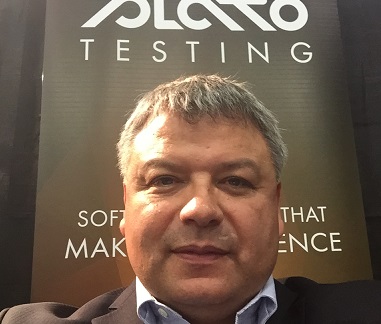When Denis Carignan met Keith McIntosh 18 months ago, they didn’t realize their encounter would lead to a new business that has the potential to employ 1,000 indigenous people across Canada.
The business is Plato Testing, a Fredericton company that is building a network of aboriginal software testers. It is set to have 50 employees by June, based mainly in New Brunswick and Vancouver, and its executives are on track to have a staff of 250 by the end of 2018. It hopes eventually to have a staff of 1,000.
The company is 50-per-cent-owned by its staff, so the goal is to bring native people into the tech community and to create wealth in First Nations communities across the country.
“What we’re seeing is the opening of a doorway, and it’s part of the indigenous experience in Canada,” said Carignan in an interview from his home in Saskatchewan.
“We’re helping people to see themselves as being able to enter a career in information technology where right now there are not that many (aboriginal) people who are working in the field.”
The story of Plato Testing began in the summer of 2015 when Carignan, whose career was dedicated to working with First Nations communities, attended the Governor General’s Canadian Leadership Conference. One of the delegates he met was McIntosh, the founder and CEO of Fredericton-based PQA Testing, which has offered software testing services for 20 years.
Lottery Innovation Outpost Primed for First Product
Software testing is a huge business worldwide, worth $6 billion to $7 billion annually, that provides quality assurance to the makers of software. Any software must be tested over and over again, in all conditions and on a range of platforms, to make sure there are no glitches. This is especially true of enterprise software produced by large companies like banks, retailers and large software companies.
The software testing industry is divided into two groups — automated, which can be carried out anywhere with computers, and manual, which is usually carried out in low-wage economies like India or China.
A native of Saskatchewan, Carignan found himself talking to McIntosh about the software market. Together, they reasoned manual software testing could be carried out in First Nations communities across the country.
They were soon working with the Community College of New Brunswick and the Fredericton-based Joint Economic Development Initiative (which promotes economic development for aboriginal communities). Carignan became the company’s president and chie operating officer. They developed a certification program for software testers at CCNB and began to train their staff.
Plato Testing is a subsidiary of PQA, and the parent company handles much of the sales as well as administrative tasks like human resources and finance. PQA has 200 customers worldwide, and now rather than ship manual testing offshore it is able to hand the jobs to Plato. The young company has however, landed its first client on its own.
Plato, which has just been accepted into the Propel ICT Growth program, has also developed its own training staff, which is allowing it to add staff rapidly. Carignan said the company is helping to develop links between corporate Canada and the First Nations.
“That linkage between corporate Canada and our population often isn’t there,” he said. “I think that Plato can help. People may be working for Plato, but they’re working on a project for Royal Bank or Canadian Tire or one of those companies. And we really believe it is a sustainable business.”










